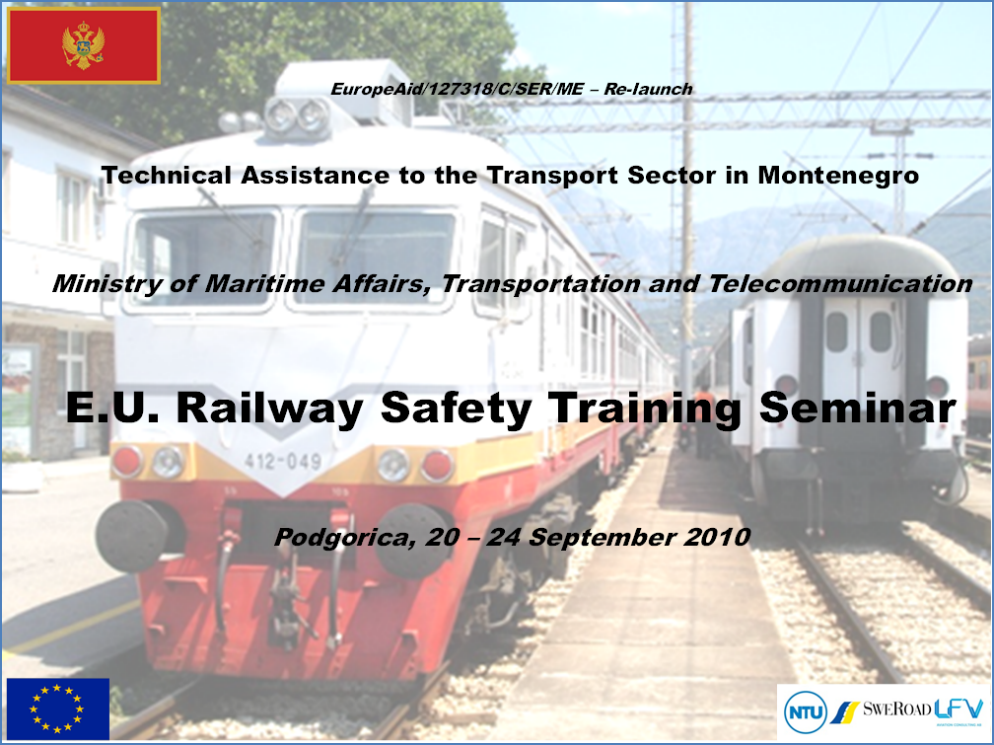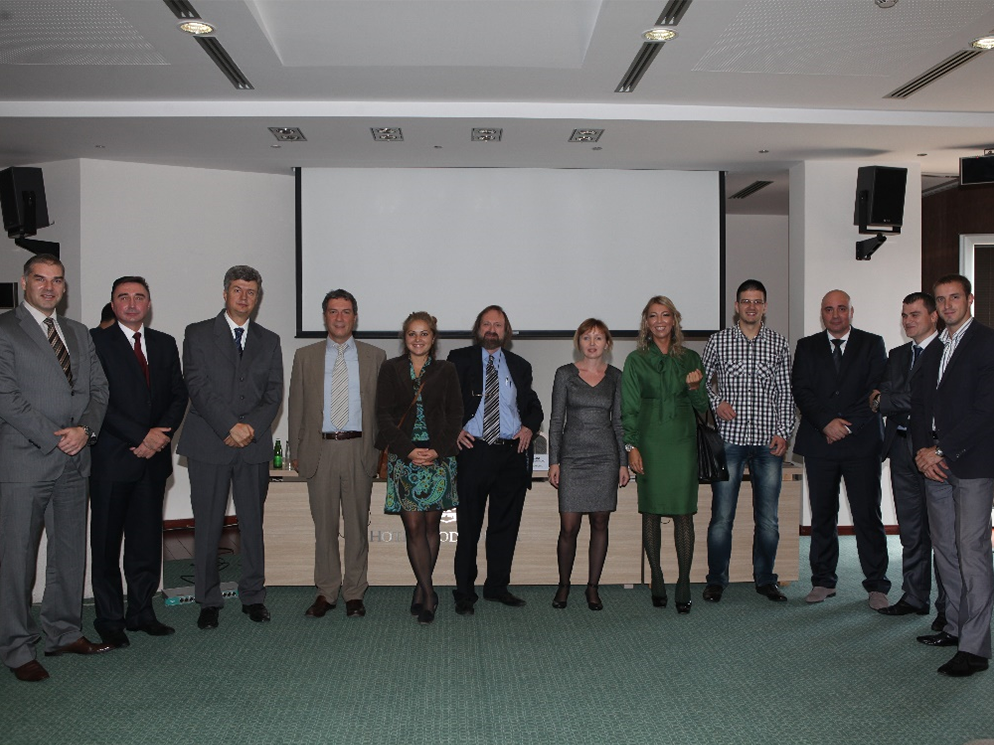Montenegro’s transport system is of strategic importance for providing the only Adriatic seaport link to the Republic of Serbia and the major road axis from Croatia and Bosnia & Herzegovina to Albania, Kosovo and the Former Yugoslav Republic of Macedonia. The transport system has a strong influence on the quality of life and overall economic development, and it must reach a certain level to positively affect social development in Montenegro. Therefore, better developed transport infrastructure, especially the expansion of railway network with special focus on strengthening of organizational capacities, was essential to enable the international competition of the Montenegrin Economy.
In that regard, NTU successfully implemented the “Technical Assistance to the Transport Sector, Montenegro”, a 1.2 Million Euro multi-sectoral infrastructure project funded by EuropeAid between 2010 and 2012. The overall objective of the project was to establish an efficient and effective system of governmental institution in charge of transport thereby contributing to the economic growth of Montenegro and facilitating trade flows with neighbouring countries.
How we did it
For this project, NTU provided technical assistance, among others in the railway sector, and contributed to the establishment of an independent and fully operational Railway Directorate. NTU experts, first, carried out an assessment of institutional and organizational situation and capacities to address the gaps and weaknesses. Subsequently, the Railway Directorate’s mission, staffing and above all, its role (as an entity developing and managing economic and safety regulations as well as supervising and ensuring the overall development of the railway sector) were clearly defined.
NTU’s efforts also targeted capacity-building, the training of staff in relation to the performance of their tasks in line with EU practice as well as safety issues and the development of a ‘blame-free culture’ in accident investigation. The latter was especially important in investigating the causes of accidents in order to take all necessary measures to avoid the repetition of errors.

Impact
The work of NTU within this project supported the improvement of the railway sector governance in Montenegro thanks to:
- An established Railway Directorate, with well-defined role, missions, and staffing, as well as proposals to organise efficiently the institution
- Trained Railways Directorate staff, as well as members of different railway companies on EU institutions and railway safety organisation
- Drafted legal acts for the railway sector
- Support on financial consolidation of the railway system in Montenegro
- Developed training materials on contracts, planning and regulatory issues


